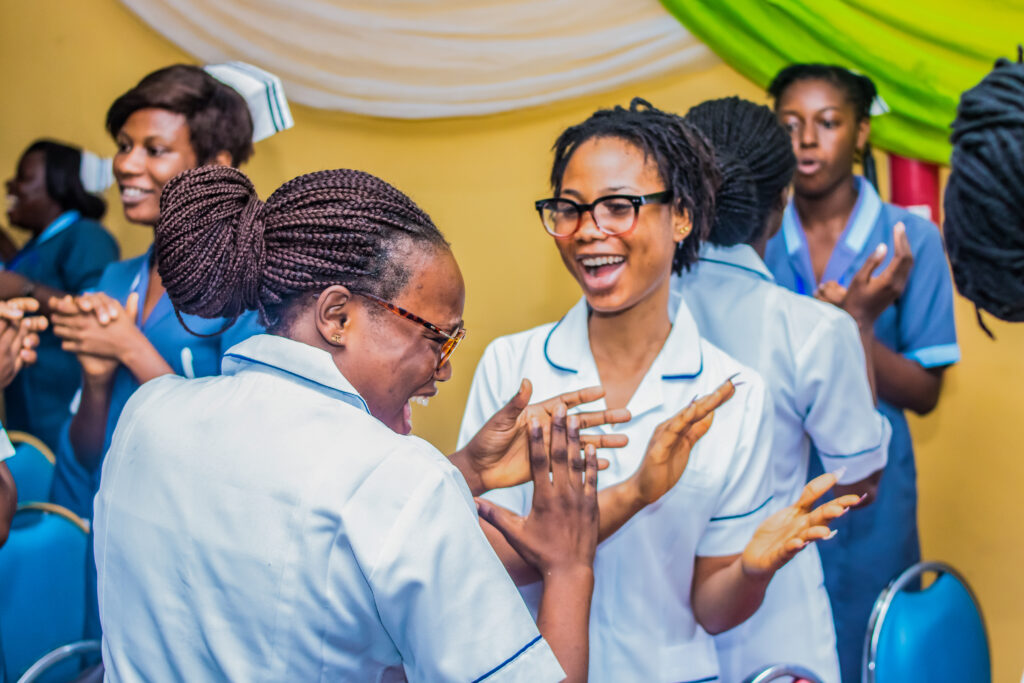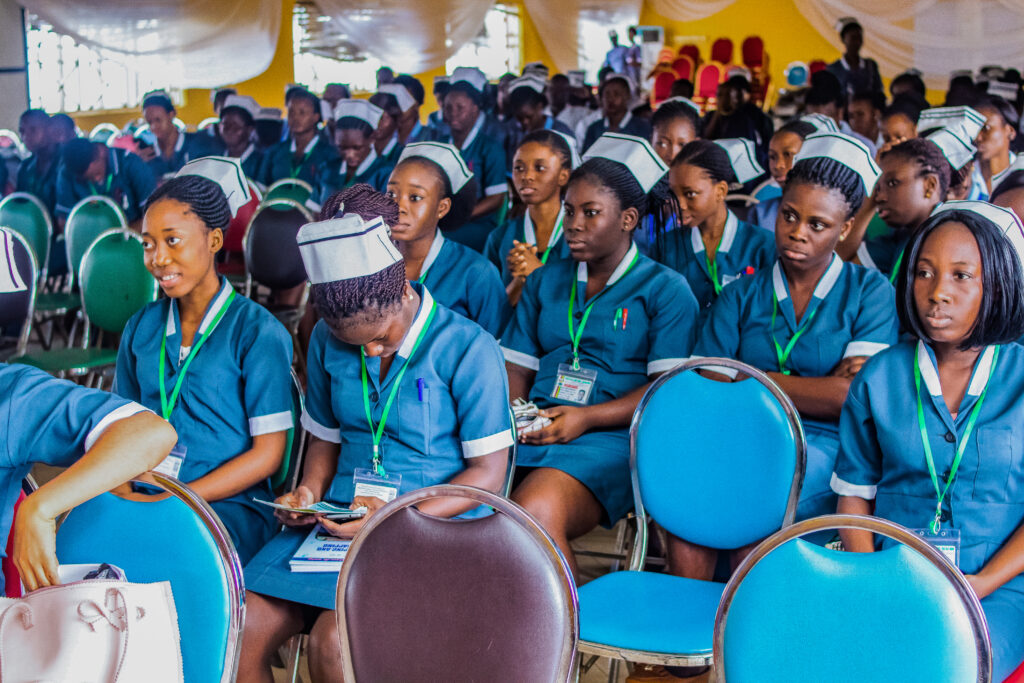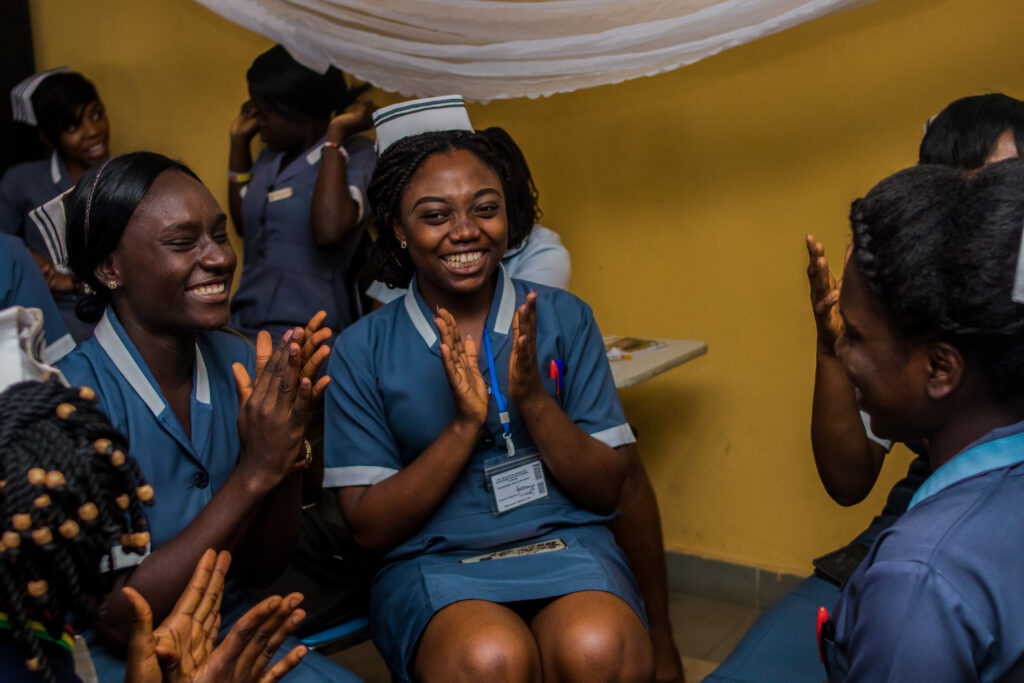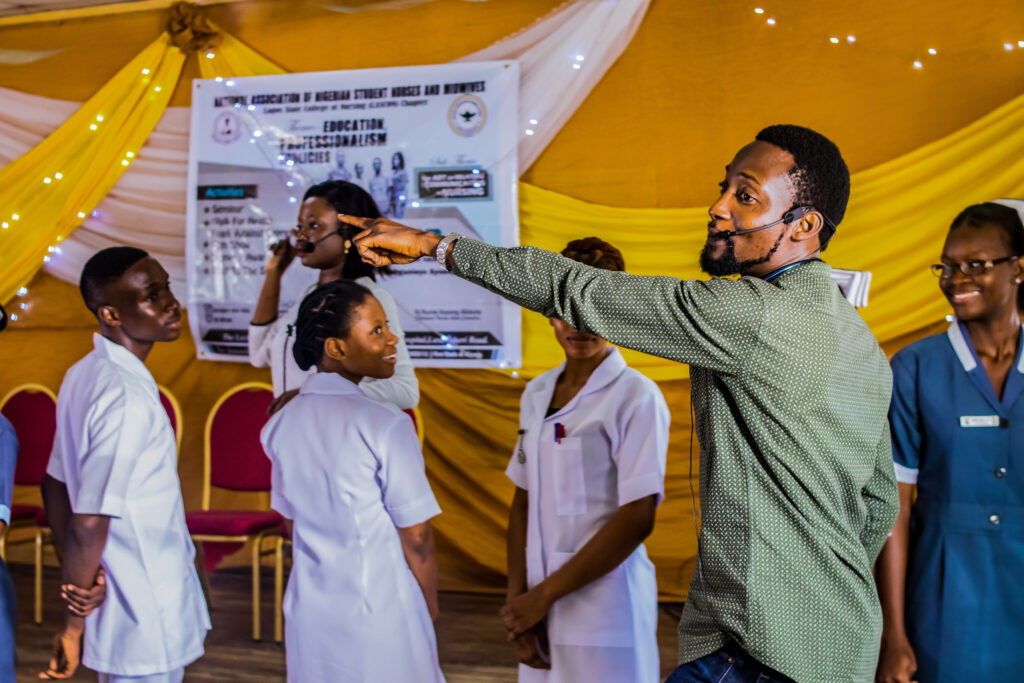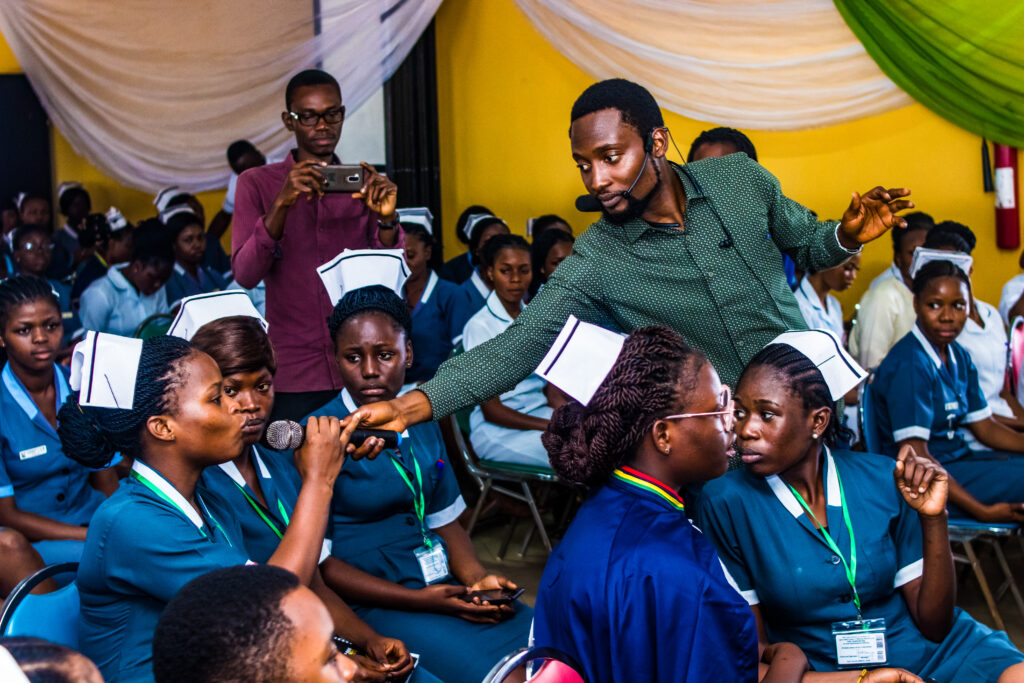OUR METHODS
Playback Nigeria offers a variety of social theatre performances that addresses issues such as conflict, communication and dialogue, hygiene promotion, HIV/AIDS, reproductive health, sex education, environmental sustainability, gender equality and mental health. We use flexible approaches in the course of our intervention. Such approaches include:
Applied Drama and Theatre:
Applied Theatre refers to the practice of using theatre-based techniques as tools to discover and learn, to explore issues of concern to communities, to identify problems and actively rehearse solutions, and to provoke and shape social change. The techniques offer the opportunity to develop new perspectives and imagine new approaches to issues and actions. Playback Nigeria offers unique techniques from the Theatre of the Oppressed and to create a space for dialogue and exploration. Participants do not require any prior experience in theatre to be part of these workshops. We explore a thorough interactive and participatory method by inviting participants to re-envision their world and actively rehearse the steps they would like to take toward that vision. Habitual ways of thinking and acting are reimagined in dynamic ways. Through games, storytelling, image and play making, and active reflection, participants engage in the creative processes of discovery and planning for actions to promote social justice and progressive change in their community.
Applied Improvisation:
Applied improvisation is the application of improvisational theatrical methods in various non-theatrical fields, including conflict transformation, consulting, training, teaching and community building. We use it as an experiential educational and community capacity engagement approach, one which enables community members to explore and improve their leadership, problem solving and interpersonal capabilities in several skills, which include collaboration, communications, creativity, and team-building.
Theatre for Advocacy
Theatre for Advocacy is an experimental art methodology developed by Playback Nigeria dedicated to creating theatrical works that serve as advocacy campaigns and awareness for social justice and community participation. It aims at inspiring, educating and activating the audiences to create social change through dialogue. A step out of line from Theatre of the Oppressed, Theatre for Advocacy deals with engaging both the oppressed and the oppressor. It is an experimental movement that has not received much write-up but is influenced by different theories and theorists.
With TFA, we hope to create a safe space for social dialogue and public enlightenment through theatre and social drama. Our artistic team uses various performance styles including drama, theatre, music, song, dance and other forms of art to engage communities. Performances are done in the best known language to the community. The TFA projects also focus on social issues including Good Governance, Health, Education and Safety. Each intervention targets specific community needs, hence, before any intervention, we conduct a baseline research in communities to ascertain issues that may be of interest.
E.g 1. Sex education intervention as a result of promiscuity or intergenerational sex in community. Our team identifies different stakeholders within the community that are of interest to the intervention and have group targeted performances. Theatre for advocacy promotes, in the participants, self-awareness, hope for the future and confidence to take action.
Playback Theatre
Playback Theatre is an original form of improvisational storytelling and enactment, based on deep listening to audience members, community and participants’ personal stories. Playback Theatre has limitless applications, including helping people understand each other across differences and elevating the stories of people who are less often heard in society. We apply Playback Theatre as a creative intervention process for mental health and psychosocial support. Being witnessed is healing, and witnessing others’ process is healing, and the intention is to build community healing. Our performance methods are mostly based on the principles of storytelling, roleplay and enactment as forms of healing and social engagement. We believe that in the process of sharing personal narratives and engaging with a larger support group, people find meaning in their life and begin the process of healing and building resilience . Playback Nigeria provides different platforms to be heard and listened to. Stories are honoured and valued.
Improv Theatre
Improvisational theatre is the form of unplanned and unscripted theatre created spontaneously by the performers. In its purest form, the dialogue, action, story, and characters are created collaboratively by the players as the improvisation unfolds in present time, without use of an already prepared, written script.
We use Improvisational techniques extensively in our community based projects; in prisons, hospitals, hospices, education and with stakeholders. At events and conferences, our team of trained performers explore improvisation to bring serious issues in the form of entertainment and comedy.
Medical Improvisation
Medical Improv is an emerging methodology that utilizes the principles of Improvisation Theatre to effectively teach emotional intelligence, communication, collaboration, and leadership within the healthcare system in order to help train clinicians be better clinicians, improve bedside manners and patient satisfaction. These are fundamental to health workers ability to provide safe, cost-effective, and compassionate care while sustaining p.long-term rewarding careers. Playback Nigeria supports medical practitioners, particularly health workers in emergency settings to be spontaneous everyday as they come across and interact with a variety of individuals and dealing with them requires good cognitive, communicative and interpersonal skills. With medical Improv, we provide the practical and experiential opportunity for health workers to improve learning and practice how to manage information transfer, strengthen teamwork across units, improve patient satisfaction and bedside manner, build trust between medical professionals and patients as a way of managing shortcomings in emergency medical practices.
